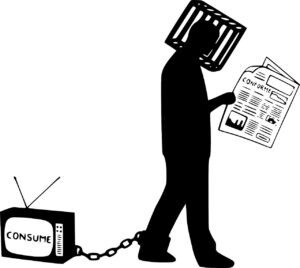A debt collector is a person or a company that is employed to collect the debts owed to others. They will typically try to contact you 30 days after your debt is due, if it has not been paid-off.
According to recent data, the total consumer debt in the United States reached over $14 trillion, emphasizing the prevalence of debt-related challenges. An estimated 30 million Americans have debts currently in collections, highlighting the widespread impact of financial struggles.
According to the CFPB debt collection survey, about one-third of consumers – or more than 70 million Americans – were contacted by a creditor or debt collector about a debt in the previous 12 months.

What is a Debt Collector?
A debt collector is a professional or agency hired by creditors to recover funds owed by individuals or businesses who have fallen behind on their payments.
These collectors operate independently or may be affiliated with the original creditor. Their primary objective is to persuade debtors to fulfill their financial obligations by negotiating repayment terms, facilitating settlements, or encouraging full payment.
Debt collectors play a key role in the financial ecosystem, helping creditors recover losses and maintain economic stability.
What is the Difference Between a Debt Collector and a Bailiff?
While debt collectors and bailiffs both deal with debt recovery, their roles and responsibilities differ significantly.
A debt collector’s main task is to contact and negotiate with debtors to secure payment. They operate at an earlier stage of the debt recovery process, typically before legal actions are taken.
On the other hand, a bailiff becomes involved after legal proceedings have commenced. Bailiffs are court-appointed officials responsible for enforcing court judgments, often through seizing assets or property to satisfy the debt owed.
In essence, debt collectors aim to resolve debts through communication and negotiation, whereas bailiffs focus on enforcing court orders through legal means.
Why Would a Debt Collector Be Contacting Me?
Receiving calls or notices from a debt collector can be alarming, but understanding the reasons behind their contact is crucial. Debt collectors may reach out for various reasons, including:
Unpaid Debts: The most common reason for debt collector communication is unpaid debts. If you have fallen behind on credit card payments, medical bills, loans, or other financial obligations, a debt collector may contact you on behalf of the creditor.
Expired Statute of Limitations: In some cases, debt collectors may attempt to collect on debts even after the statute of limitations has expired. It’s essential to be aware of the limitations on debt collection practices to protect your rights.
Identity Theft: Occasionally, individuals are contacted about debts they don’t recognize. This could be a sign of identity theft, and it’s crucial to investigate and report any discrepancies to both the creditor and relevant authorities.
Which Laws Limit What Debt Collectors Can Say or Do?
To protect consumers from unfair and abusive practices, the United States has established laws that regulate the actions of debt collectors. The Fair Debt Collection Practices Act (FDCPA) is a crucial piece of legislation that outlines the permissible conduct of debt collectors. Some key provisions of the FDCPA include:
Prohibition of Harassment: Debt collectors are forbidden from engaging in any conduct meant to harass, oppress, or abuse debtors. This includes threats, obscene language, and repeated phone calls.
False Representations: Debt collectors cannot use deceptive practices, such as misrepresenting the amount owed, falsely claiming to be attorneys, or threatening legal actions they do not intend to take.
Verification of Debts: Upon request, debt collectors must provide written verification of the debt, including the amount owed and the name of the original creditor.
Cease and Desist Rights: Consumers have the right to request that a debt collector cease communication. Upon receiving such a request, the collector must stop contacting the debtor, with a few exceptions.
How Can I Get a Debt Collector to Stop Calling Me?
If you find yourself inundated with calls from debt collectors and wish to halt their communication, consider the following steps:
Request Written Communication: Under the FDCPA, you have the right to request all communication in writing. This not only provides a clear record of the correspondence but can also reduce the frequency of phone calls.
Verify the Debt: If you dispute the debt or believe there may be an error, request written verification from the debt collector. They are obligated to provide this information, allowing you to review the details and address any discrepancies.
Cease and Desist Letter: You can send a cease and desist letter to the debt collector, requesting that they stop contacting you. This should be done in writing and sent via certified mail. While this will stop most communication, some exceptions may apply, such as informing you of legal actions.
Consult with an Attorney: If the situation becomes overwhelming or if you believe your rights are being violated, seeking legal advice is a prudent step. An attorney can guide you through the process, ensuring your rights are protected.